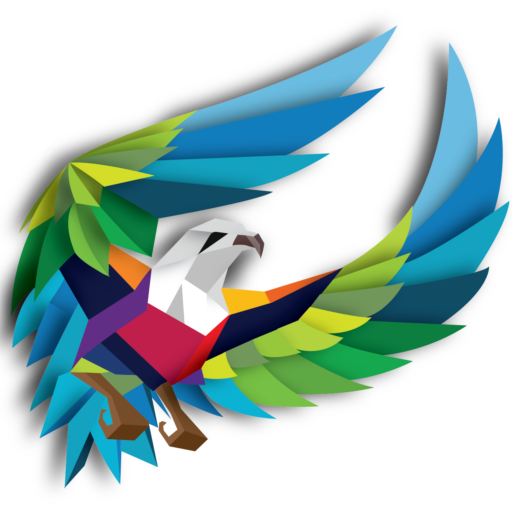App Development
FitFusion Wellness, a fitness and wellness startup, approached America’s Designers Company to design and develop a mobile app aimed at empowering users to track workouts, manage nutrition, and participate in virtual fitness challenges. The goal was to create an engaging, user-friendly app that could compete with established brands while standing out with unique features like community integration and AI-driven personal recommendations.
Problems
FitFusion faced several challenges:
- Lack of a Digital Presence: While the brand had a loyal customer base, it lacked a mobile app to enhance customer engagement and expand its reach.
- Complex User Needs: Users demanded a feature-rich app that combined fitness tracking, meal planning, and social connectivity.
- User Retention Issues: Without gamification or personalized features, users could lose interest quickly.
- Scalability Concerns: The app needed a robust backend to handle thousands of users seamlessly and support future feature expansions.
Solutions
1. Research and Ideation
- Conducted user research through surveys and focus groups to understand target audience preferences.
- Analyzed competitors to identify gaps in the market.
- Collaborated with FitFusion’s team to outline the app’s core features and prioritize them for development.
2. Design and Prototyping
- UI/UX Design:
- Created an intuitive interface with a minimalist design that emphasizes ease of navigation.
- Designed dashboards for users to view their workout stats, calorie intake, and progress at a glance.
- Interactive Prototyping: Used tools like Figma and Adobe XD to build clickable prototypes for user testing.
- Branding Integration: Ensured the app’s design aligned with FitFusion’s branding by using its color palette, typography, and logo prominently.
3. Feature Development
- Core Features:
- Workout Tracker: Users can log workouts, track progress, and access pre-designed workout plans.
- Meal Planner: AI-based meal suggestions tailored to users’ fitness goals and dietary restrictions.
- Social Challenges: Users can join fitness challenges, earn badges, and share progress with the community.
- AI Coach: A virtual coach provides personalized fitness and nutrition advice based on user data.
- Push Notifications: Encouraged user engagement through reminders for workouts, hydration, and daily tips.
- Gamification: Added leaderboards, achievements, and rewards to keep users motivated.
4. Technology Stack
- Frontend: React Native for cross-platform compatibility (iOS and Android).
- Backend: Node.js with a MongoDB database for scalability.
- AI Integration: TensorFlow for predictive recommendations and analysis.
- APIs: Integrated third-party APIs for fitness tracking (e.g., Apple Health, Google Fit).
5. Testing and Deployment
- Conducted rigorous testing, including functional, performance, and user acceptance tests.
- Used TestFlight and Google Play Console for beta testing with a select group of users.
- Deployed the app on the App Store and Google Play Store with an optimized ASO strategy.
Results
User Growth
- App Downloads: Surpassed 50,000 downloads within the first three months of launch.
- Active Users: Achieved a retention rate of 70%, significantly above the industry average.
Engagement Metrics
- Daily Active Users (DAU): 15,000 users log in daily to track workouts and meals.
- Challenge Participation: Over 10,000 users joined community challenges in the first quarter.
Revenue Impact
- Subscription Model: Launched a freemium model with in-app purchases for premium plans, generating $100,000 in the first quarter.
- Ad Revenue: Partnered with health-related brands to generate an additional $25,000/month through targeted ads.
User Feedback
- App Rating: Maintained an average rating of 4.8/5 on both app stores.
- Positive Reviews: Users praised the app’s ease of use, customization options, and gamification elements.
Visual Representations and Analytics
1. App Dashboard Design
(Visual Placeholder): Clean, modern dashboard showing:
- Workout tracking progress.
- Calorie intake bar chart.
- Weekly goal completion badges.
2. Feature Usage Analytics
| Feature | Usage Percentage (%) |
|---|---|
| Workout Tracker | 75% |
| Meal Planner | 60% |
| Social Challenges | 50% |
| AI Coach | 40% |
(Pie chart showing feature usage distribution.)
3. User Growth Chart
(Graph Placeholder): A line graph showing exponential growth in app downloads and active users over six months.
4. Leaderboard Example
(Visual Placeholder): Weekly leaderboard showcasing top challenge participants and their progress points.
Key Recommendations for Future Enhancements
- Wearable Integration: Add compatibility with smartwatches to track workouts directly.
- Virtual Classes: Introduce live and recorded virtual fitness classes within the app.
- Corporate Plans: Create team-based challenges and subscriptions for corporate wellness programs.
- Global Expansion: Localize the app for international markets with language and cultural customizations.



